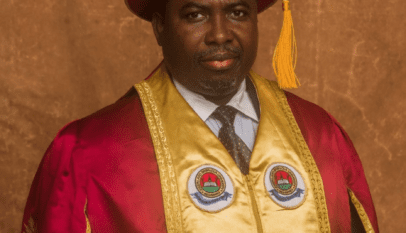By Deborah Nnamdi
Senate President Godswill Akpabio has declared that the National Assembly will not be held hostage by the “disruptive instincts” of any of its members, stressing the importance of discipline and adherence to parliamentary rules in preserving Nigeria’s democracy.
In a statement issued on Saturday by his media aide, Eseme Eyiboh, titled “The Trials and Triumphs of a Resilient Nigeria’s 10th Senate,” Akpabio said the legislature’s insistence on enforcing its rules was not aimed at silencing dissent but at safeguarding order and institutional integrity.
“The Senate cannot and will not be held hostage by the disruptive instincts of any of its members,” Akpabio said. “Democracy thrives only when its institutions are respected and its rules upheld.”
His remarks come amid a dispute with Senator Natasha Akpoti-Uduaghan (Kogi Central), who recently returned from a six-month suspension and has continued to contest the legality of the disciplinary action.
Akpabio noted that the Senate’s Standing Orders were not “ceremonial relics” but vital instruments designed to preserve fairness and the sanctity of the legislative process.
He drew comparisons with parliamentary traditions in the United Kingdom’s House of Commons, where he said the authority of the Speaker is “absolute and unchallenged,” and violations of parliamentary order attract swift consequences.
“In the world’s most respected parliaments, members who flout rules face suspension or expulsion when their behaviour undermines parliamentary dignity. Nigeria’s Senate has every right to apply similar standards,” he said.
Describing the 10th Senate as “a chamber of resilience and balance,” Akpabio said the leadership was committed to upholding democratic values while maintaining internal order.
“When the chamber asserts that it will not be held hostage by the disruptive instincts of any single member, it affirms the primacy of collective responsibility over individual grandstanding,” he added. “This is how strong legislatures endure — not by silencing dissent, but by ensuring that dissent respects the bounds of procedure.”
Akpabio emphasised that his leadership approach prioritises firmness, inclusion, and stability, noting that the Senate must remain a stabilising force in the face of rising populism and public cynicism.
“Leadership of this sort does not seek applause; it seeks stability,” he said. “By upholding its Standing Orders, the Senate has reclaimed its moral authority and demonstrated that rules, properly enforced, are not instruments of oppression but shields against institutional decay.”
































